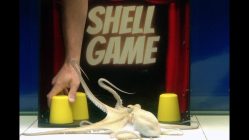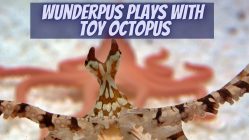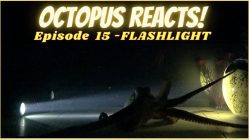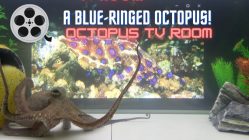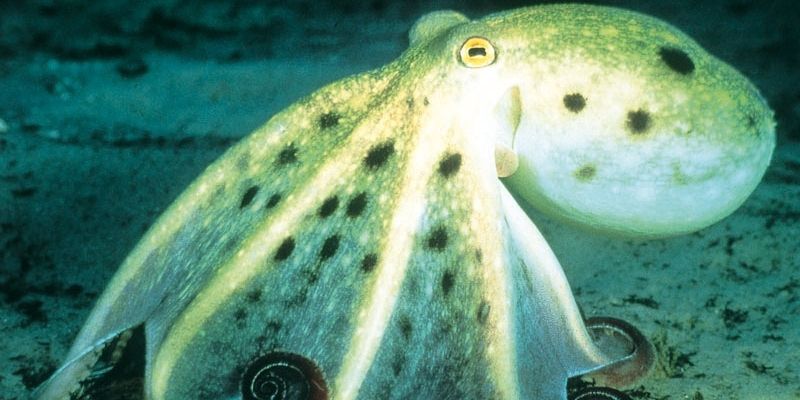
If you try to find some information about the Musky Octopus, you will most probably get tired of reading cooking recipes. Although the Musky Octopus is so popular among chefs, little is known about its behavior and ecology.
Musky Octopus Facts
- Scientific Name : Eledone Moschata
- Common Name: Musky Octopus
- Size: up to 74 cm
- Weight: up to 1,4 kg
- Lifespan: up to 2 years
- Found in: Mediterranian Sea
- Sub-Order: Incirrina
- Discovered: 1798
- Scientific Name : Eledone Moschata
- Common Name: Musky Octopus
- Size: up to 74 cm
- Weight: up to 1,4 kg
- Lifespan: up to 2 years
- Found in: Mediterranian Sea
- Sub-Order: Incirrina
- Discovered: 1798
The Musky Octopus is a relatively small species which has a very characteristic smell of musk, hence its common name.
—Distribution and Habitat—
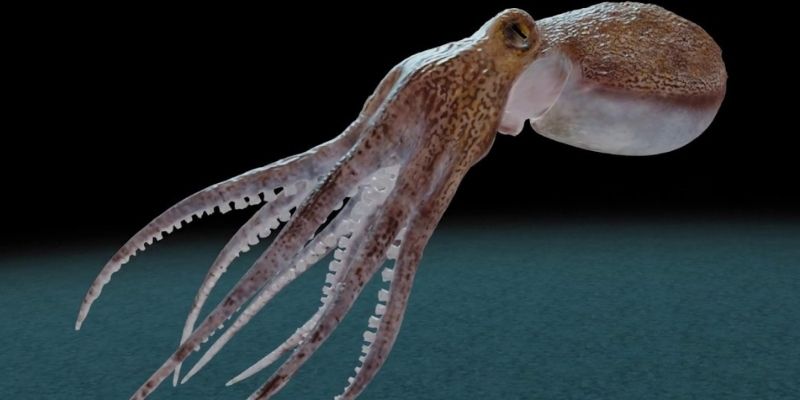
The Musky Octopus mainly occurs around the Mediterranean Sea, although individuals have been observed as far as the Gulf of Cadiz and off the coast of Portugal.
It is a shallow-water species that prefers sandy and muddy bottoms. The Musky Octopus is more usually observed at a depth range of 50 to 80 meters unlike its closely related Curled Octopus which is more often found a bit deeper, at a depth range of 180-450 meters. Individuals of the species have been observed between 8-400 m depth.
Unlike most species, the hatchlings of the Musky Octopus do not go through a planktonic phase and immediately inhabit the sea bottom.
—The Smelly Octopus—

Eledone Moschata is a relatively small species, with a narrow head and protruding eyes. The larger known individual was caught in the Gulf of Izmir and had a total length of 74 cm.
Similar to its close relative the Curled Octopus, the Musky Octopus is easily distinguished by its single row of suckers on its arms. Its color is grey to brown and its skin very smooth.
The Musky Octopus has a very characteristic smell of musk, hence its common name. Glands located in the skin are reported to secrete the strong smell of musk, as it is the case with other animals or plants suck as the musk deer or the musk duck.
—The Musky Octopus and Local Economies—

The Musky Octopus is considered less tasty than the Common Octopus, and its commercial value is therefore less than half of the value of the Common Octopus. It is sometimes even discarded by fishermen. Still, compared to other, inedible species, the Musky Octopus is important to the economy of the coastal communities of the Mediterranean region.
Sadly, the commercial demand for this species has led the scientific community to pay more attention to its reproduction and growth rates. It would be nice to have more information available about the life and ways of the Musky Octopus and to be able to appreciate this creature as something more than a food source.





